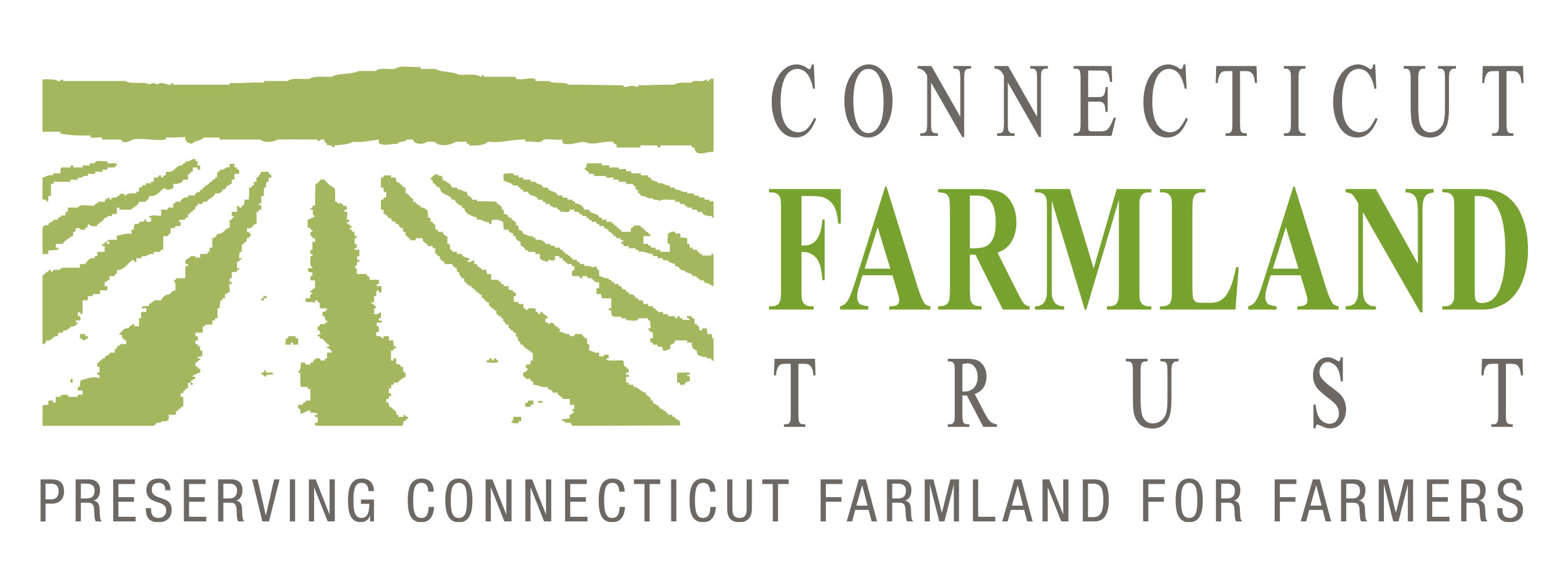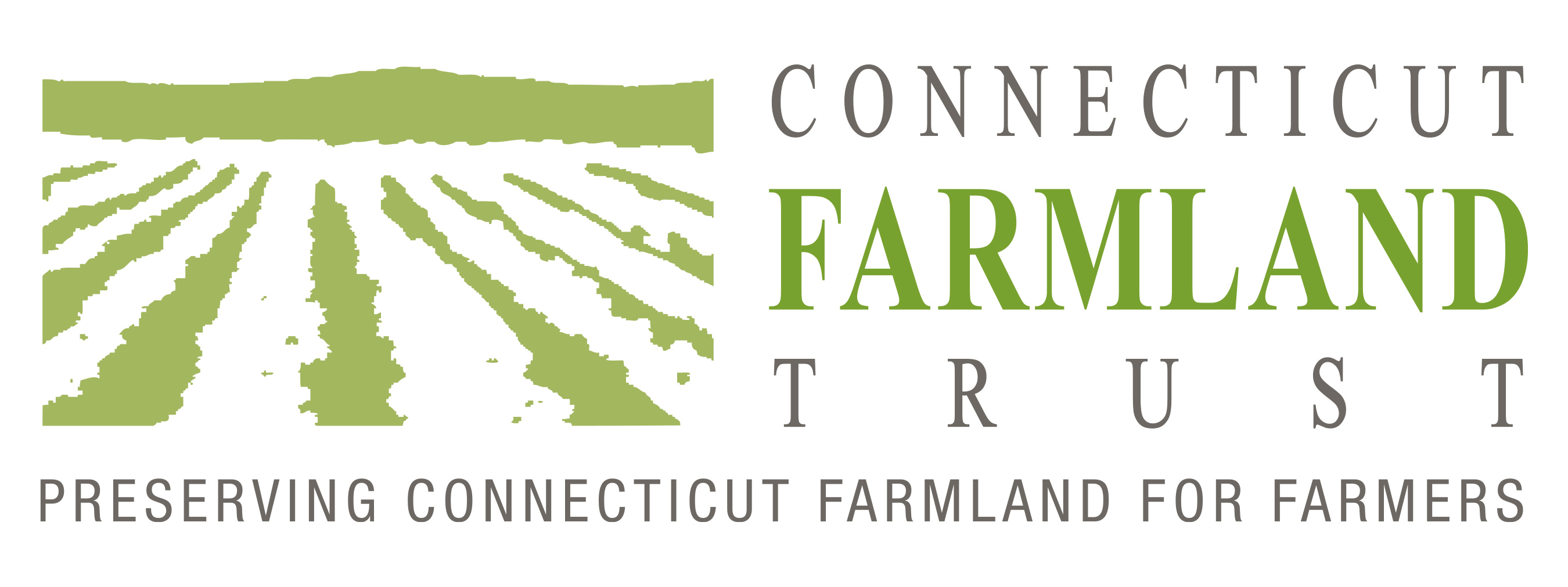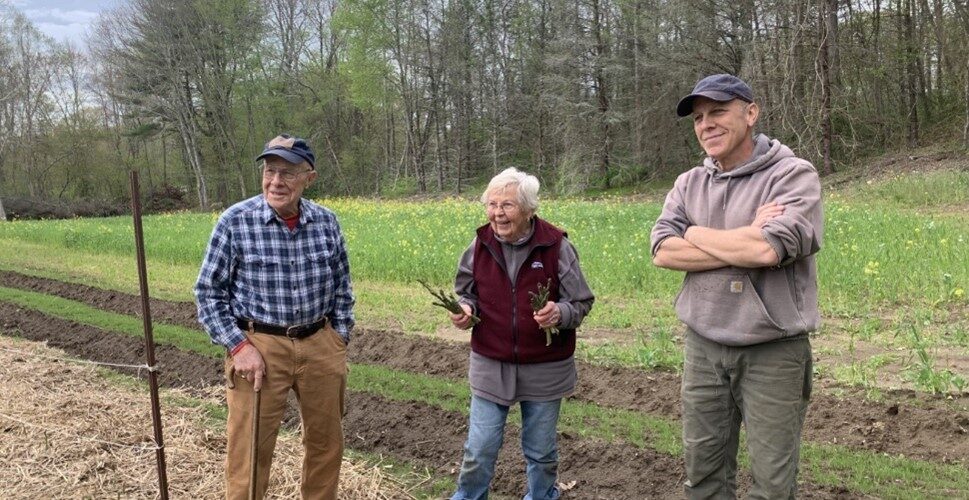If there’s one thing that the Wingate Family of Studio Farm in Voluntown, CT stands by, it’s understanding where your food comes from. “My sister always says, ‘You gotta know your farmer,’” said Matt Wingate in a recent interview with Connecticut Farmland Trust’s Conservation and Stewardship Coordinator, Cat Wang. Cat set out to do just that, to get to know the farmers of Studio Farm and learn more about the soil health practices implemented by him and his parents, Dick and Dot Wingate.
A Brief History of Studio Farm
Dick and Dot moved to Studio Farm on April 10, 1963. At the time, Dick worked as a high school teacher, and Dot was a stay-at-home mom to four children. Having the ability to grow their own food proved to be vital in making ends meet, and as a result, agriculture soon became a way of life for the family. “I was a spoiled rotten kid, and I never knew it. I know now,” Matt said to his mother, reflecting on how she tended to the animals, grew vegetables, and canned food to provide for the family. Once Matt and his siblings left for school, Dot also pursued a career as a high-school teacher. For a while, the couple maintained their small-scale farming on the side, but it wasn’t until the late ’90s after the couple retired, that they dove into a more serious, commercial farming operation. Today, Studio Farm sells a little bit of everything, from Asian greens to zucchinis and strawberry rhubarb jam,” Matt explained.
For the Wingate children, growing up on a farm fostered a love for agriculture and the land that provided for them. To this day, the four children are all still involved with the family’s farm, and two of them have even decided to pursue farming as a full-time career. Previously an engineer at the National Oceanic and Atmospheric Administration (NOAA), six years ago, Matt decided to return to Voluntown to farm with his parents at Studio Farm. His sister, Belinda Learned, also left her full-time job to pursue farming full-time at her own dairy and vegetable farm operation, Stony Ledge Farm. Studio Farm and Stony Ledge Farm work in tandem with one another and attend two farmers markets a week. Each also run their own CSA programs. “We’re a total partnership between my mom, my dad, and my sister,” Matt concluded when describing the farm operations. Paying homage to their humble beginnings, the Wingate family has now long thrived from working together and making decisions in the best interest of the land and the people they are feeding.
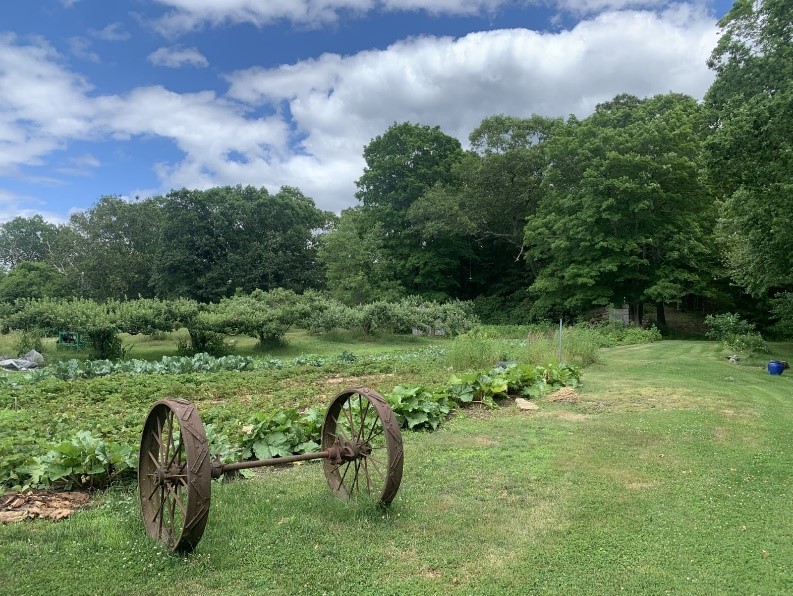
The front fields of Studio Farm with many of their crops in full bloom.
Soil Health Practices
Though Studio Farm has long prioritized the well-being of the land and its community, it was only in the last ten years that the family began to pay close attention to the health of their soil. Why, you may ask? Well, “any farmer will tell you, the weather is changing,” chimed Matt, “and you’re seeing mass run-off and dust bowls similar to those of the 30s. I’ve been on the tractor where I’ve needed goggles because we had bare soil and a little wind would blow and there goes my top soil.” Matt’s background as an environmental engineer at NOAA compounded with the real life changing weather events in CT as a farmer were driving forces in deciding to actively partake in soil health practices to combat these issues.
Having no prior expertise in soil health, Matt relied on inter-farm collaboration and farmer knowledge sharing when implementing soil health practices on Studio Farm. “I like hearing from farmers and how they do it and then try to just make it better,” Matt continued. “My parents are members of the grange – for farmers to get together and ask, ‘Well, what do you do? What do you do?’ Farmers need to do that more.”
Seeking to learn more about soil health practices, he took an online course with UConn Extension’s soil scientist, Kip Kolesinskas, and toured Bryan O’Hara’s farm in Lebanon to see how he implemented soil health practices. Over time, Matt and his family strengthened their own soil health practices by emulating practices from other farms that saw success from focusing on their soil health. “A lot of what [Bryan] does I try to do here,” Matt elaborated. “So we do cover crops, we rotate our crops, and we make our own compost.”
COVER CROPPING
The most effective practice that Studio Farm has implemented has been cover cropping. Studio Farm has had cover crops on their land for about ten years. This year, after many seasons of fighting weeds between potato plants, the Wingates tried cover cropping between the rows of plants instead of using methods like weed fabric. “I’m thinking the potato crop this year will be stellar because the plants didn’t have to fight for water since there aren’t weeds.” Matt said. With the cover crops suppressing the weeds, he estimated that “weed reduction went from probably 100% to 5%” from the previous year alone.” Moreover, cover cropping has enabled the farmers to move away from intensive manual labor days to more days where they can just sit on a tractor to do their work.
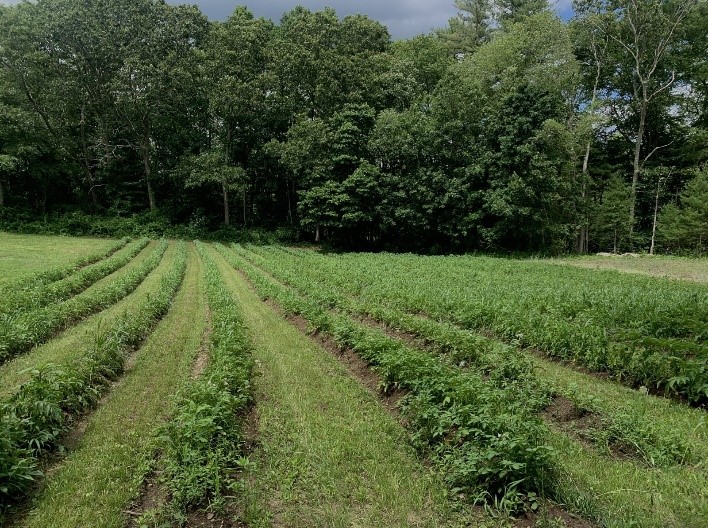
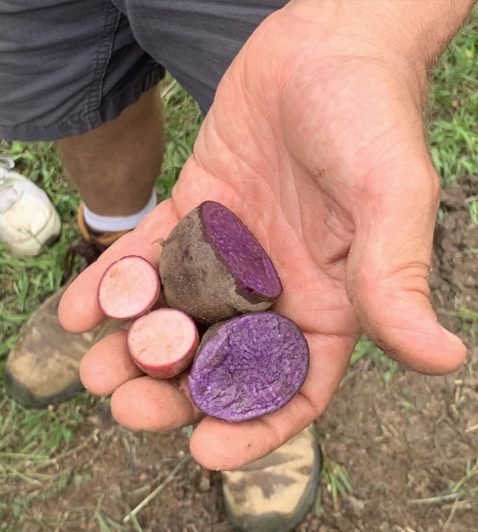
With a successful harvest anticipated due to the effectiveness of their most recent cover-cropping project, the entire family was excited for a bountiful harvest of red, white, and blue potatoes for their Fourth of July celebration.
In addition to weed suppression, cover cropping has been beneficial for many other reasons. Matt explained, “We also cover crop to not have any brown soil (bare soil). We no longer seem to have nice gentle rains. It rains with attitude, and this past winter, almost every rain we had was extreme wind and rain, it was horizontal.” The heavier the rain event, the more susceptible to compaction and erosion soil is. For the Wingates, having a cover crop has alleviated these issues significantly by fostering healthy microbiomes underneath the soil that allow for more water filtration and retention, as well as taking on the brunt force of the rain, helping to reduce soil compaction.
Currently, Matt is also experimenting with new kinds of cover crops to further enhance the soil. After finding a seed supplier that lists which kinds of organic matter each crop can add to the soil, Matt has taken to deliberately choosing cover crops based on which nutrients they will add to the soil. Being able to use a cover crop to build organic matter rather than relying on expensive and toxic fertilizers has resulted in a great sense of satisfaction for the Wingates.
COMPOSTING AND PEST MANAGEMENT
Next to Studio Farm’s rows of potatoes interspersed with alleys of grass cover crops, is a large compost pile that has already sprouted a large squash plant. “We don’t use fertilizer here; I just make as much compost as I can,” Matt beamed. Though the farm has been composting from the very beginning, they have now scaled up their composting operations, using mostly manure from the neighbors’ farm animals, and all the leaves they collect in the fall from trees. For a long time, their simple composting method has been an extremely effective way to increase the organic matter content of the soil without relying on toxic chemicals to help their plants grow. “We try not to sustain the soil but build it. That’s why we do so much with compost and organic matter,” explained Matt.
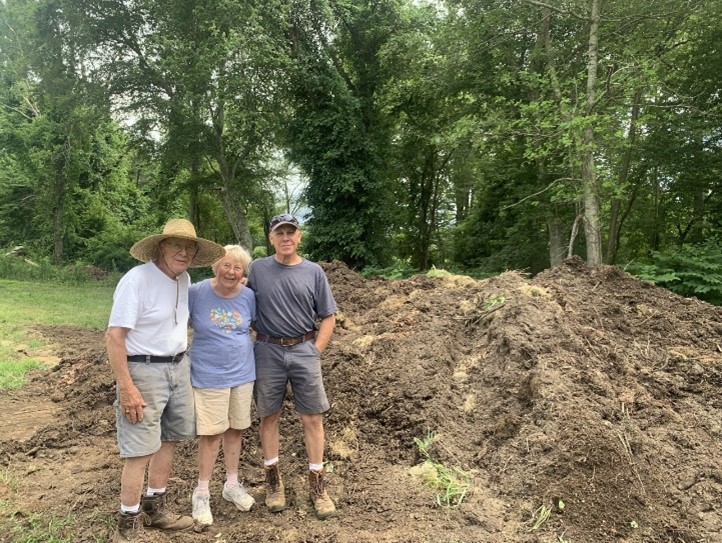
Dick, Dot, and Matt standing in front of their ever-growing compost pile.
Caring deeply about the well-being of their community and customer base, this non-toxic philosophy has extended to all matters on the farm, including pest management. This has resulted in more creative solutions to deal with the farm’s harmful insects. Matt explained how he learned from his sister’s success on Stony Ledge Farm with the use of nematodes. “Nematodes are little microbial bugs that you put in the spray rig and spray all over your garden,” Matt explained, highlighting how this method controls pests such as squash bugs while benefiting soil health. “My sister’s really big on it but it’s expensive… But after a couple of years – I think two – she said she can really see a difference in her high tunnel.”
Moving Forwards, Looking Backwards
Seeing how far the Wingates have come in their soil health practices, Cat inquired further about their implementation process, specifically the challenges they faced when they started as well as what they think is preventing other farmers from starting. Matt responded firmly, “Well, unless you’re like a Kip who went to school for this, I think our impediment was just a lack of awareness… But I’ll also say they’ll be the first to tell you ‘I have no time.’”
Perhaps a universal trend for farmers across the country, the sheer lack of time is often a large obstacle to implementing new practices on their farm. Yet, Matt emphasized how worthwhile he found these methods to be for his family’s farm, from increased yields and climate resiliency to decreased labor and input costs. Though requiring an initial investment in time and resources, being open to learning from other farmers has proven to be extremely valuable to Studio Farm when looking for solutions to their problems.
Soil health practices vary greatly from farm to farm, influenced by factors such as ecology, time, goals, and access to information. With intensifying weather patterns, these practices have become increasingly important. For Matt, soil health is about “doing the right thing – to build the soil and leave it better than what we had.”
